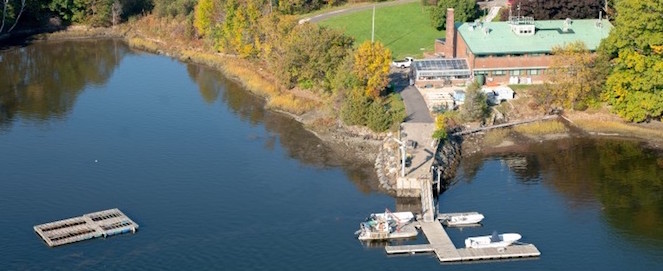
Jackson Estuarine Laboratory
Effects of Baled Solid Waste Disposal in the Marine Environment—A Descriptive Model
Abstract
Compacted experimental bales of municipal solid waste (trash) have been immersed in seawater for several years and monitored for chemical, biological and physical changes. This experimental data is used to develop a descriptive and simple mathematical model for a commercial-sized disposal operation on the continental shelf or deep water off the shelf, handling the needs of a medium-sized coastal city. Factors considered in the model include: bale size; quantity per unit time; bale composition; packaging; areal extent of dump; depth; biota; current regime; decomposition rates; and the effects on water quality such as oxygen consumption, dissolved organics, nutrients, and hydrogen sulfide. The effects of a dumpsite on bottom water quality at the end of one year are calculated for a shallow and deep site for the "average-most likely" dump and plausible extremes of the above variables.
Publication Date
6-1975
Journal Title
Marine Chemistry in the Coastal Environment
Digital Object Identifier (DOI)
Document Type
Article
Rights
Copyright © 1975 AMERICAN CHEMICAL SOCIETY
Recommended Citation
Loder, T.C. 1975. Effects of baled solid waste disposal in the marine environment – a descriptive model. In: T.M. Church (ed.), ACS Symposium Series, Number 18. Marine Chemistry in the Coastal Environment. pp. 467-486.
